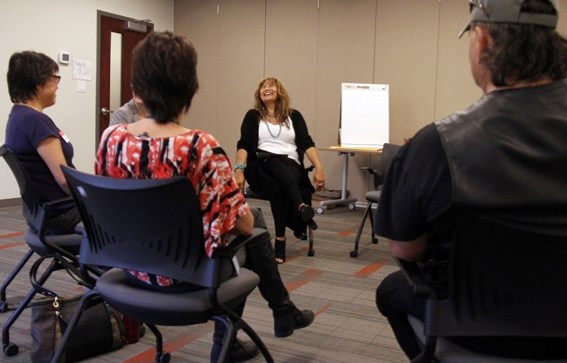Cold Lake and District FCSS is aiming to make the Lakeland region a more inclusive community through their Welcoming and Inclusive Communities Human Rights Learning Series.
The 11-week program will teach residents about human rights, how to be more inclusive and will include a long list of guest speakers knowledgeable in the field.
Melanie Heroux, community partnerships facilitator for Cold Lake and District FCSS, said while searching for speakers FCSS tried to keep the search as local as possible, however there will be some speakers from areas outside of Cold Lake.
The idea was inspired through the Cold Lake Welcome and Inclusive Communities Committee, which is a group aiming to promote a more inclusive and accepting community that shows respect and dignity towards other cultures and backgrounds.
“That's what human rights encompasses, is all of that,” Heroux said.
Those attending will learn about the declaration of human rights, diversity and multiculturalism, state of disability rights, women's rights, and indigenous rights, and children's rights to name a few.
“(Melanie) is actually the first in Alberta to launch a human rights learning series,” Renee Vaugeois, executive director of the John Humphrey Centre for Peace and Human Rights said. “I think that the conversation on human rights is very critical, because it starts to open up, to me human rights language and human rights standards give us ways to open up the conversation around issues that people don't generally want to talk about.”
At the end of the course participants will receive a certificate and, because this is their first attempt at the learning sessions, there is no cost associated.
Heroux said, in regards to the importance of offering this to the community, “It's just to make a positive difference in our community, and to offer these learning sessions so people can learn more about human rights and how the basic act of being born connects you to human dignity. There are rights that go along with that, and not too many people are aware of those rights.”
“I think there are many people who see a lot of challenges in our communities and I think it's time to be frank and real and talk about those things. I think the intention of human rights dialogues is to open up those spaces, and bring some of those conversations into the public discourse, so we can engage with it, connect to it, and have conversations about what is it that we want to see in our community,” Vaugeois said.
She added that certain concerns are relevant throughout Alberta, including issues involving land, human rights, and poverty, and “there's a lot of challenges that we are facing across the province.”
These sessions provide a platform for residents to learn more about some of these issues.
“It's important to be looking to our governments (regarding these challenges), but we have to engage in those conversations and we have to be frank with those issues in our community,” Vaugeois noted.
Lyla Allan, Cold Lake resident and coordinator of the community social work program at Portage College, is taking the course so that she can bring the information back to other students.
“I know that some of the students aren't able to attend, so I would like to bring the information back to them… I am hoping to learn ways to provide this information to others, because I feel that it is very important.”
The first session of the inclusive series was hosted on Wednesday, Sept. 14, and following meetings will be will be held every Wednesday until Nov. 23. The sessions start at 6:30 p.m. at the Cold Lake and District FCSS building. For more information, contact the FCSS at 780-594-4495.



